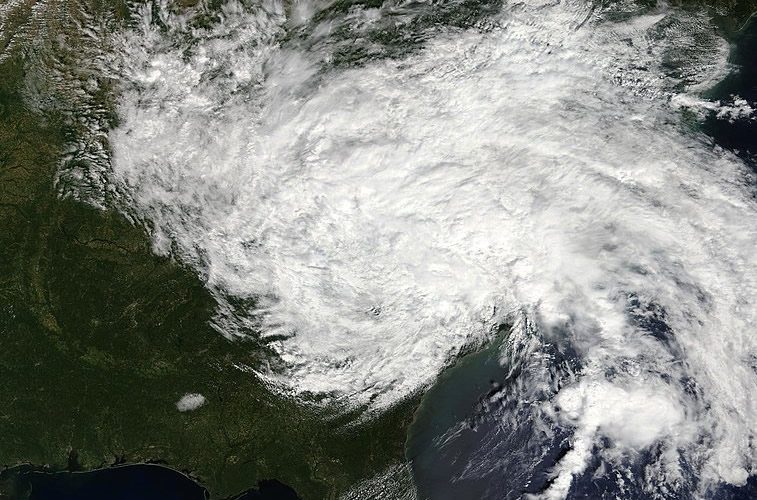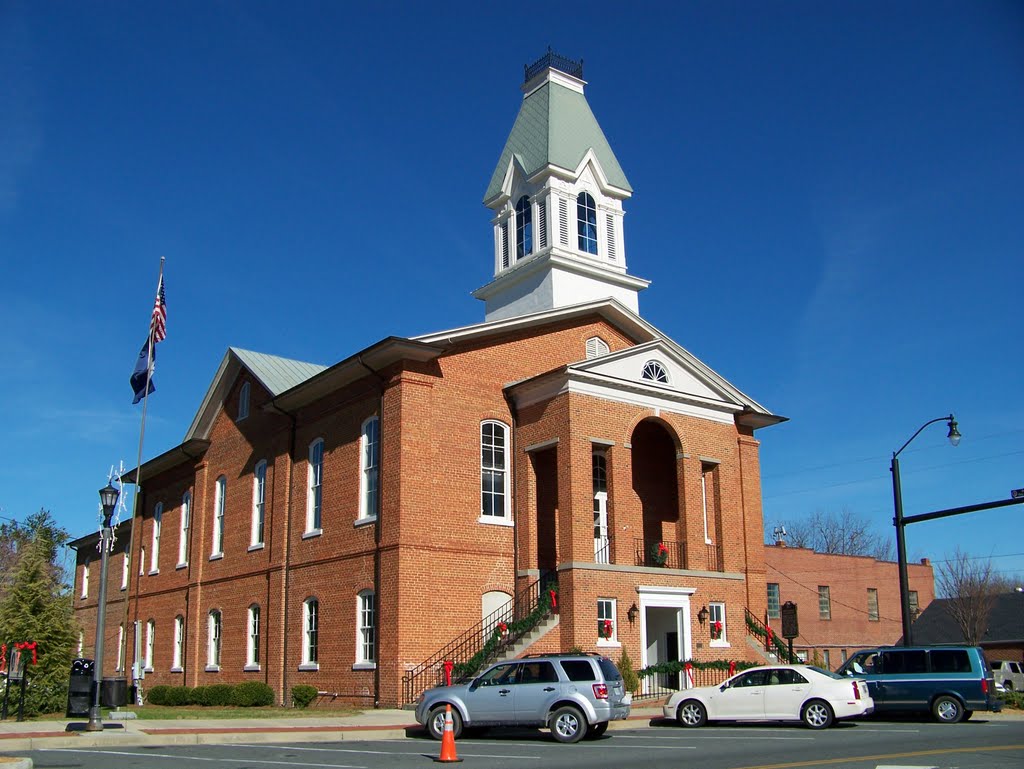STATEHOUSE REPORT | ISSUE 22.32 | Aug. 11, 2023
BIG STORY: Cuts may upend S.C’s child care system
MORE NEWS: Liquor liability law threatens S.C. small businesses, advocates say
WEEK IN REVIEW: Charleston, Horry counties rank high in hurricane vulnerability
LOWCOUNTRY, Ariail: The hotter it gets …
COMMENTARY, Brack: Haley, Scott have a lot at stake in August 2024 debate
SPOTLIGHT: S.C. Senate Democratic Caucus
MYSTERY PHOTO: Is it a church?
FEEDBACK: Stick to your guns
Cuts may upend S.C’s child care system

By Chelsea Grinstead | South Carolina parents struggling to secure adequate child care may face additional hardship soon as billions of dollars of federal stabilization funding is poised to expire Sept. 30, experts say. The potential loss to the Palmetto State is staggering – up to almost $900 million a year.
“When parents don’t have child care, it impacts the kids, their families, employers and the greater community,” said Bett Williams, chief communications officer of Columbia nonprofit Children’s Trust of South Carolina. “We look forward to working with the state’s leadership on developing workable, sustainable solutions to this complex problem.”
In response to the Covid-19 pandemic crisis, the American Rescue Plan Act (ARPA) provided nearly $40 billion in child care funds to states which allocated $15 billion in supplement funding to the existing federal Child Care and Development Block Grant (CCDBG) program, according to Karen Schulman, director of state child care policy for the National Women’s Law Center in Washington, D.C.
South Carolina was allocated $183 million in federal CCDBG funding in 2023, she said. In addition, ARPA provided South Carolina with $273 million in supplemental CCDBG funding and $437 million in child care stabilization grant funding.
“Federal funding is crucial for supporting South Carolina’s child care system,” Schulman told the Charleston City Paper.
What’s at risk
The Law Center refers to a recent report published by The Century Foundation nonprofit, which found that 49,335 South Carolina kids soon are set to lose child care and 618 child care programs in the state are expected to close. The report analyzed state-level data on the number of child care centers and family care providers receiving child care stabilization grant funding and the number of children reached through the funding.
The National Women’s Law Center is making efforts to ask Congress to pass an additional $16 billion in emergency relief funding that would allocate additional funds to South Carolina. The Law Center also encourages parents to contact their congressional delegation and urge them to pass the additional emergency relief funding, she said.
“It stands to reason that without this additional funding, South Carolina is likely to scale back access to child care assistance,” Schulman said.
Devastation may be ahead for child care industry
The loss of the federal stabilization grant dollars, which expire on Sept. 30, will be devastating for the child care industry as a whole, Schulman said.
“Families and children will bear the brunt of the harm if Congress fails to provide the [additional] $16 billion that is necessary to help states stave off the looming child care crisis,” she said.
Federal stabilization funding allowed South Carolina to raise payment rates for child care programs, which in turn likely helped programs maintain or increase wages for child care workers, she said.
“This is critically important given that wages for child care workers have grown at a slower rate than other low-wage jobs.”
If child care programs are no longer receiving federal stabilization grants, she said, programs may need to compensate for that lost income by raising parents’ fees or reducing staffing — and some may even be forced to close. Another possible effect is an increased child-to-teacher ratio that could mean less one-on-one attention.
“We encourage families to talk with directors and teachers at their child care programs about any potential impacts of the loss of the federal funding,” Schulman said.
Williams cited a national statistic that could suggest South Carolina parents were already grappling with inadequate access to affordable child care even before this potential loss of stabilization funding.
Almost 15% of South Carolina parents reported having to quit, change or refuse a job due to child care problems, she said, citing a 2021 National Survey of Children’s Health from the United States Census Bureau.
Options for financial aid
Families can try contacting the South Carolina Child Care Resource and Referral agency or the Trident United Way to see if they are eligible for options for federal, state, local or private programs that offer assistance with child care costs.
The South Carolina Department of Social Services (SCDSS) offers child care scholarships for working parents, said SCDSS Public Information Coordinator Danielle Jones. No current scholarship recipients will be affected by the potential change in federal stabilization funding.
- Have a comment? Send to: feedback@charlestoncitypaper.com
Liquor liability law threatens S.C. small businesses, advocates say

By Skyler Baldwin | A grassroots movement led by small business owners and other community members across the Palmetto State is looking to undo damage they say was caused by the 2017 passage of new state liquor liability insurance laws.
The law in question, S. 116, requires all bars, restaurants and venues that serve alcohol after 5 p.m. to carry a $1 million liability insurance policy. The measure was meant to protect victims of drunk driving and their families. But organizers with the grassroots SC Venue Crisis organization say the measure was missing key language to prevent it from being exploited to the detriment of business owners.
“The insurance policy is typical in business — it’s normal to have coverage of that nature,” said organizer Asheton Reid, one of three organizers who is from Piedmont. “But when there’s no percentage of fault rules attached to that — even if you are just 1% at fault — you can be held responsible for $1 million.”
And in South Carolina, multiple establishments can be held 100% in a lawsuit — the real crux of the problem, Reid said.
“Frivolous lawsuits in the wake of S. 116 have caused spikes in insurance rates,” she said. “We aren’t saying the victims don’t deserve anything, but this is making insurance companies leave the state. In 2017, we had at least 12 insurance providers, and now we’re down to three in just a few years.”
The average liability policy in the state, Reid said, skyrocketed from between $2,000 and $5,000 to up to $25,000. Some business owners said they struggled to find rates below $100,000. The higher costs are threatening to close dozens of small businesses across the state.
“Most small businesses can’t afford that, and even those that can shouldn’t have to,” Reid said.
Potential avenues for change
Proposed legislation in the state House of Representatives and Senate is looking to remedy the situation, and advocates are also encouraging broader tort reform to make it more difficult for so-called “frivolous lawsuits” to cripple business owners.
H. 4529, the S.C. Save Our Venues Act, was introduced in the S.C. House in June as the session was drawing to a close. It would prevent businesses from being held liable for injury, death or damage caused by an individual who became overly intoxicated as long as the business did not continue to sell alcohol to that individual beyond a reasonable level.
The bill, introduced by S.C. Rep. Stewart Jones, R-Laurens, has 15 co-sponsors and was referred to the Judiciary Committee June 14. It likely won’t be considered until next year.
“We would love for [S.C. Gov. Henry] McMaster to call an emergency session to bring people back in on this issue before more businesses are forced to close,” Reid said. “Think of the unemployment this could cause — the trickle-down effect. The venue isn’t just the building; it’s the bar staff, the wait staff, distribution and food providers.”
Another Senate bill, the S.C. Justice Act, introduced by senior S.C. Sen. Thomas Alexander, R-Oconee, would amend several state laws governing percentage of fault and liability. It was referred to a Senate subcommittee in March chaired by S.C. Sen. Gerald Malloy, a Democratic sponsor of the current law. Malloy did not respond to requests for comment.
“The tort reform is designed to make it harder for plaintiffs to sue,” Reid said. “It’s to make sure these lawsuits are fair, not frivolous. It can also decrease potential compensation after a suit has been won, placing caps on economic damages and attorney fees.”
Getting others involved
The SC Venue Crisis movement has hosted several town hall meetings across the state to drum up support for the effort. The next town hall is set for 7 p.m. Aug. 14 at Frothy Beard Brewing Co. in Charleston.
According to organizers, several Lowcountry legislators said that they were interested in attending, including S.C. Rep. J.A. Moore, D-S.C., and S.C. Sen. Sandy Senn, R-S.C., but they did not respond to requests for comment.
“The town halls are really where we have the biggest chance of getting things done,” Reid said. “We’re telling everyone to, respectfully, because nothing gets done by being rude, contact their local legislators and let them know to support H. 4529 and S. 533.
“We have everyone’s best interest at heart,” she added. “It’s a legislative problem, and we want those who were voted in to make sure these small business owners and South Carolinians are taken care of and don’t have to worry about where their next paycheck is coming from.”
Skyler Baldwin is a reporter with the Charleston City Paper. Have a comment? Send to feedback@statehousereport.com.
Charleston, Horry counties rank high in hurricane vulnerability

Staff reports | Charleston and Horry counties are the third and fourth most vulnerable counties to hurricane risks along the Atlantic coast, according to a new study by Gutter Gnome. Also in the top 10: Beaufort, Berkeley and Dorchester counties. Federal authorities recently projected the 2023 hurricane season to be above normal.
As first reported by the Charleston City Paper, South Carolina and Florida dominated the list, with Broward and Palm Beach counties in Florida taking the top two spots. Charleston and Horry counties took the next two, and Miami-Dade County in Florida brought up the back of the top five. Beaufort, Berkeley and Dorchester counties ranked sixth, seventh and ninth, respectively. Honolulu County in Hawaii is the only Pacific county in the ranking and registered the most hurricane activity, though it only ranked 52nd overall.
Ben Webster, Charleston County’s emergency management deputy director, said the county’s high ranking may be due to Charleston’s reputation.
“Charleston is a phenomenal place to live,” he said. “People come year after year to visit our great county, and that gives us a lot of pressure. The eye is on us, and a large-scale hurricane would have major repercussions.”
Charleston County ranked ninth in the study’s hurricane risk score and second in hurricane history, which counts the number of major hurricanes in the last 10 years organized by category. Near misses are also factored in, and while Charleston does not often take the brunt of a hurricane’s landfall, it is often in its crosshairs. Charleston County also ranked eighth in financial impact, becoming the only county in South Carolina to crack the top 10 in that metric.
In other recent news:
Statewide preschool initiative gets permanent approval. South Carolina is cementing a public-private partnership that has been expanding preschool services statewide over the past quarter century, preparing children ages 4 and under.
State health officials release updated vaccine requirements for schools. The South Carolina Department of Health and Environmental Control has announced updated immunization requirements for kids in childcare and school, including changes to required ages for certain vaccines.
S.C. lawmakers study cost, collaboration opportunities to give free meals for K-12 students. South Carolina lawmakers are exploring the expense of offering free meals to all K-12 students statewide by looking at how to maximize various nutrition programs funded by the federal government to feed more students, while increasing collaborations with local farmers.
The hotter it gets …

Award-winning cartoonist Robert Ariail generally has a biting or funny comment about the great state of South Carolina in his weekly cartoon. This week, he blends the whole concept of global warming with the surreal art of Salvador Dali. Love the cartoon? Hate it? What do you think: feedback@statehousereport.com.
Haley, Scott have a lot at stake in August 2024 debate

By Andy Brack | Two homegrown presidential candidates have a lot of work to do if they want to break out of single digits in the polls and be serious 2024 contenders.
 A late July New York Times/Siena College national poll showed just 3% of respondents preferred former S.C. Gov. Nikki Haley and U.S. Sen. Tim Scott, R-S.C. – just like former Vice President Mike Pence. All three seem to brag they’re in third place in national polling, but really? – especially when the obvious frontrunner, former President Donald Trump, scored a crushing 54%. Florida Gov. Ron DeSantis came in a distant second at 17%.
A late July New York Times/Siena College national poll showed just 3% of respondents preferred former S.C. Gov. Nikki Haley and U.S. Sen. Tim Scott, R-S.C. – just like former Vice President Mike Pence. All three seem to brag they’re in third place in national polling, but really? – especially when the obvious frontrunner, former President Donald Trump, scored a crushing 54%. Florida Gov. Ron DeSantis came in a distant second at 17%.
So to suggest that Haley and Scott have a lot at stake in the first big debate of the primary season on Aug. 23 might be the understatement of the year.
“While debates don’t often change minds in the general election, they can help voters differentiate between candidates in a primary,” College of Charleston political scientist Gibbs Knotts observed.
Louis Jacobson, senior correspondent with Politifact, said Haley and Scott haven’t yet broken through the clutter and made much of an impression with primary voters.
“This has been hard for all of Trump’s competitors, of course, given that his legal issues have sucked up so much of the oxygen,” he said.
Nevertheless, Haley and Scott have been good at raising millions of dollars. Haley has been on the hustings all over New Hampshire and Iowa making direct appeals to voters with a signature line that she’ll outwork every other candidate. Scott has been smiling a lot and pushing his personal moral code across Iowa to try to break through with a decency message, in contrast to Trump’s behavior revealed in three criminal indictments.
Ahead for Haley

So what does Haley have to do in the debate to break out of the pack? More than likely, she’ll pound her foreign policy experience gained while Trump’s ambassador to the United Nations and will particularly try to make China a bogeyman.
Knotts said she’ll also tout her executive experience as governor. She probably won’t brag about efforts to lure Chinese companies to the Palmetto State. But she will use poll-tested language to pick a fight with the current president, Joe Biden.
One long-time political observer commented, “Her theme reminds me of the old red scare tactics. Any criticism she throws at Trump will be obtuse and refer to ‘a new generation of leadership.’”
Greenville Republican analyst Chip Felkel said Haley has to engage on her former boss, Trump – even if he doesn’t show up for the debate.
“Haley must quit straddling the fence,” he said. “She must go after Trump and go after him hard, as someone who witnessed first hand his volatility and unwillingness to take the advice of those who he placed in positions of responsibility.
“Unlike Scott, she has receipts and she needs to present clear evidence of his mistakes on foreign policy, how she differs with him. Until she clearly and distinctly tells us what would be different in a Haley Administration as opposed to re-electing the former guy, she will continue to tread water.”
Scott’s challenge

Scott also needs a strong debate performance and likely will send a clear message of “you can trust me.” He may use Mexico, instead of China, as his bogeyman to attract support.
“I expect Scott to talk about his compelling personal story and his strong conservative voting record in the U.S. Senate,” Knotts said. “
Felkel said Scott hasn’t yet taken Trump to the woodshed, but should.
“I do think his more positive message is being received and appreciated by the voters who are just tired of all the controversy and bluster, but like Haley, he has yet to tell us what would be distinctly different if he were to win versus Trump,” he said.
“Both Haley and Scott are running too much against Biden when their opponent right now is really Trump.”
Andy Brack, editor and publisher of the Charleston City Paper and Statehouse Report, last week was named first-place winner for political columns in the 2023 national contest by the Association of Alternative Newsmedia. Have a comment? Send to: feedback@statehousereport.com.
S.C. Senate Democratic Caucus
 The public spiritedness of our underwriters allows us to bring Statehouse Report to you at no cost. This week’s spotlighted underwriter is the S.C. Senate Democratic Caucus. Organized almost 25 years ago, the Caucus has played an important role in many of the historic issues facing our state. As a vibrant minority party in the Senate, its role is to represent our constituents and present viable alternatives on critical issues. The S.C. Senate Democratic Caucus remains a unique place for this to occur in our policy process.
The public spiritedness of our underwriters allows us to bring Statehouse Report to you at no cost. This week’s spotlighted underwriter is the S.C. Senate Democratic Caucus. Organized almost 25 years ago, the Caucus has played an important role in many of the historic issues facing our state. As a vibrant minority party in the Senate, its role is to represent our constituents and present viable alternatives on critical issues. The S.C. Senate Democratic Caucus remains a unique place for this to occur in our policy process.
- Learn more about the Caucus at: www.scsenatedems.org.
Is it a church?

Here’s another big brick building with a skinny tower. What and where is it? Send us your guess of what this photo shows – as well as your name and hometown – to feedback@statehousereport.com.

Last week’s “Tall and skinny” photo, sent in by reader Bill Segars of Hartsville, looks remarkably similar to the Georgetown Rice Museum featured in a July issue. But this photo shows a clock tower in Winnsboro.
Reader Allan Peel shares that the “ground floor of the building once served as Winnsboro’s public market and is now used as a meeting space for a variety of organizations while the upper floor is home to the Fairfield County Chamber of Commerce. The current building and tower dates back to 1875 when it was built to replace a public market that was originally established in 1785.
“The clockworks were built in 1837 from parts that originated in Alsace, France. In 1875, it became necessary to repair the clock tower and John D. Smart (1842 – 1908), an African-American carpenter from Winnsboro, did the repair and the present tower was erected to hold the clockworks. It has run continuously for more than 185 years, and is therefore considered to be the longest, continuously running town clock in the United States. “
Others who correctly identified the old clock tower were: John Hart, Rusty Reed and Elizabeth Jones, all of Columbia; Steve Willis and Cynthia Craig, both of Lancaster; George Graf of Palmyra, Va.; Montez Martin Jr. of Charleston; David Lupo of Mount Pleasant; Frank Bouknight of Summerville; Pat Keadle of Wagener; Michael Webb and Don Clark, both of Hartsville; and Rose Johnson.
>> Send us a mystery picture. If you have a photo that you believe will stump readers, send it along (but make sure to tell us what it is because it may stump us too!) Send to: feedback@statehousereport.com and mark it as a photo submission. Thanks.
Stick to your guns
![]() To the editor:
To the editor:
Stick to your guns, Andy. You’re making excellent points.
When voters continue to re-elect corrupt politicians, we perpetuate corruption. Also sometimes it’s difficult to see ourselves as we are. For instance, I doubt that when ex-President Trump promised to “drain the swamp,” he never intended or even thought that he might be included!
And please keep sending us Ariail cartoons. They are keepers!
– Miriam Mitchell, Seabrook, S.C.
Send us your thoughts
We encourage you to send in your thoughts about policy and politics impacting South Carolina. We’ve gotten some letters in the last few weeks – some positive, others nasty. We print non-defamatory comments, but unless you provide your contact information – name and hometown, plus a phone number used only by us for verification – we can’t publish your thoughts.
Have a comment? Send your letters or comments to: feedback@statehousereport.com. Make sure to provide your contact details (name, hometown and phone number for verification. Letters are limited to 150 words.
- ORDER NOW: Copies are in Lowcountry-area bookstores now, but if you can’t swing by, you can order a copy online today.
- Now available as an e-book!
ABOUT STATEHOUSE REPORT
Statehouse Report, founded in 2001 as a weekly legislative forecast that informs readers about what is going to happen in South Carolina politics and policy, is provided to you at no charge every Friday.
- Editor and publisher: Andy Brack, 843.670.3996
Donate today
We’re proud to offer Statehouse Report for free. For more than a dozen years, we’ve been the go-to place for insightful independent policy and political news and views in the Palmetto State. And we love it as much as you do.
But now, we can use your help. If you’ve been thinking of contributing to Statehouse Report over the years, now would be a great time to contribute as we deal with the crisis. In advance, thank you.
Buy the book
Now you can get a copy of editor and publisher Andy Brack’s We Can Do Better, South Carolina! ($14.99) as a paperback or as a Kindle book ($7.99). . The book of essays offers incisive commentaries by editor and publisher Andy Brack on the American South, the common good, vexing problems for the Palmetto State and interesting South Carolina leaders.
More
- Mailing address: Send inquiries by mail to: P.O. Box 21942, Charleston, SC 29413
- Subscriptions are free: Click to subscribe.
- We hope you’ll keep receiving the great news and information from Statehouse Report, but if you need to unsubscribe, go to the bottom of the weekly email issue and follow the instructions.
- Read our sister publication: Charleston City Paper (every Friday in print; Every day online)
- © 2023, Statehouse Report, a publication of City Paper Publishing, LLC. All rights reserved.


